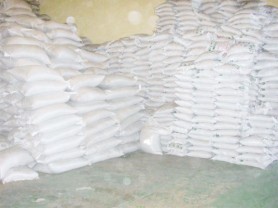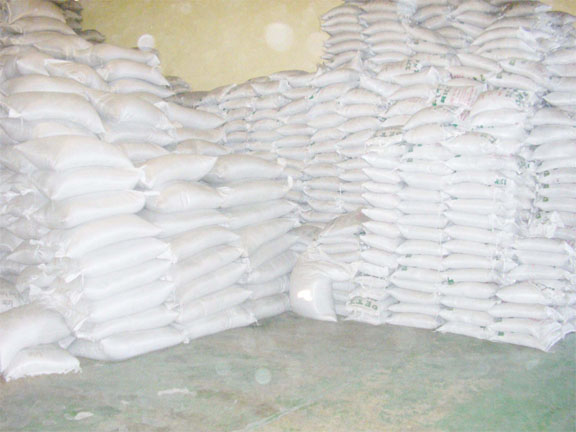Stabroek Business talks with Mohindra Persaud, General Manager of Nand Persaud and Company
One of the best-known enterprises in Guyana’s all-important rice industry, Nand Persaud and Company appears driven by the vision of maximizing continually emerging international markets for the product in a global environment that has placed food security at the very top of its agenda.

Milling is the company’s business. Mohindra Persaud, its General Manager, says that while its operations include a modest measure of rice farming, as much as 98% of its product is bought from private rice farmers.
Since 1992 when the company commenced milling operations, it has set its sights on sustained expansion in order to meet the demands of growing local and international markets. In 1996 the company added two-tonne parboil plants to its inventory and in keeping with its focus on expansion installed a 24-tonne dryer with four storage tanks shortly thereafter. In 1999, the highly popular Karibee brand was launched. All this, Persaud says, has helped the company grow nine-fold in both the domestic and local markets since its inception.
If the Karibee product has long claimed its fair share of the local market, Nand Persaud’s primary focus has been on the steady expansion of its regional and international markets. Over time, it has carved its own niche among Caricom countries and the bulk of its exports go to Trinidad and Tobago and Jamaica. “We take the Caricom market seriously,” Persaud says.

Marketing rice has its challenges not least of which are price fluctuations that can send the industry into a tailspin. Just over a year ago prices stood at around US$800 per tonne. The current price of $445 – $450 per tonne reflects just how much the fortunes of suppliers can change. Persaud says that recent indications that prices are once again inching their way upwards has not been lost to the company. He believes that the upward price trend is a function of higher wheat prices, a circumstance that has shifted consumer choices to the more affordable commodity. He believes that the upward trend in rice prices will continue.
Large as the company currently is, Persaud believes that there is room for even more growth. Nand Persaud employs 150 persons and its delivery operations are handled by a fleet of 34 trucks outsourced from private operators and employed with the company on a full-time basis, mostly to transport milled rice to Georgetown. The trucking operation provides employment for a further 60 people.
Focused as the company remains on the growth of its export market, it undertook a $35 million investment earlier this year in the installation of a new packaging plant. Further plans for upgrading its operations included the imminent increase in drying and storage capacity at its drying plant located at Number 36 village on the Corentyne. All this, Persaud says, along with other lesser improvements, are expected to be completed before March next year. This, he says, is in keeping with the practice of carrying out rehabilitation or upgrading work at the plant every year. Work never stops. The company’s milling operation produces 10 tonnes of rice per hour and operates at full capacity, round the clock.
Nand Persaud’s sustained investment in enhancing its efficiency is driven by a conviction that there is still further room for growth, particularly in the export market. The success of the Karibee brand has also resulted in modest growth of the company’s local market. But exports remain the company’s preoccupation and Persaud says that the growth in the regional market keeps the company busy. Consumers in Trinidad and Tobago are large consumers of its premium white rice. Additionally, the company exports its own Karibee and Crown brands and packages other regional brands including Trinidad and Tobago’s Naisa brand for re-export to the region,
Persaud says the current purchasing trends indicate a growing demand for the company’s packaged rice on the regional market. Trinidad and Tobago, for example, continues to show an increasing preference for purchasing packaged rice.
The company’s general manager is upbeat about the future of the industry. He says that approximately 50% of Guyana’s rice exports go to the European market as cargo or bulk rice while a further 6-8% is exported as packaged rice. “It’s still a long way to go,” Persaud says. He believes that the future of the industry lies in a greater focus on continually adding value to the country’s rice exports. Increasing production, to meet the growing demands of the regional market ought to be another key preoccupation of the local rice sector.
The challenges, Persaud says, go beyond production levels. Human resource problems arising out of a lack of skills also continues to bedevil the local rice industry. It is, he says, no different in the various other sectors of the Guyana economy.

